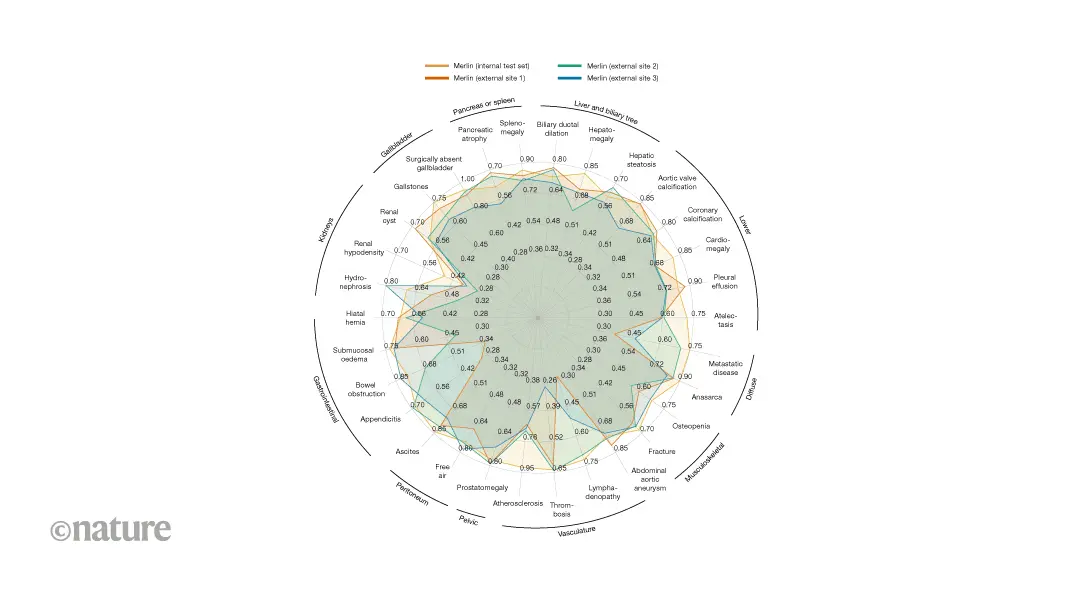The Rise and Debate of 'Founder Mode' in Silicon Valley
2 Sources
2 Sources
[1]
Why Paul Graham's 'founder mode' became a rallying cry
It might sound like a dumb question after the tech industry's nonstop (or ad nauseum, depending on your perspective) discussion about it over the long, Labor Day weekend, prompted by an essay written by Y Combinator cofounder Paul Graham. Companies can be run in two ways, "founder mode" and "manager mode," Graham wrote, citing a recent talk by Airbnb cofounder Brian Chesky as his inspiration. Founder mode is clearly better, Graham argued -- founders should be more involved in the weeds of their companies, not less. Okay, but what actually constitutes a founder-mode company? Can any company operate in founder mode or is it only for startups? Can a company do founder mode if the founder is lousy -- or lazy? And can a business leader toggle between founder and manager mode as easily as switching their phone ringer on or off? Where do women fit into the founder mode equation? Graham never expressly defines founder mode in his essay, and in the more than 72 hours of intense -- and occasionally bizarre -- online discourse that followed Graham's essay, the topic seemed to take on a Rorschach test quality as people projected their own ideals onto Graham's inkblot. "It's kind of a rallying cry," said Jeremy Fiance, founder of The House Fund. "There's an element here that's about the battle between the public and private markets. There's a ton of tension between public market financial investors, every VC out there who's hoping for liquidity, and founders who thought they were going to be able to go public, but haven't...This came out at a perfect time in which a lot of founders are beat up and looking for permission to unleash their instincts, persist, and get to the promised land." This is the season for rallying cries, as Silicon Valley's tech leaders link arms with the like-minded and square up against ideological foes in politics, culture, and anything else. Why not management philosophy too? In that sense, founder mode is more of a vibe than a formula. And it resonates for a reason. Behind closed doors, I've talked to so many founders who have felt pressured to become someone else as their companies grew, sometimes even becoming victims of their own success. Ultimately, the volume on founder mode talk has gotten turned so far up so fast, because it's existential. "I can certainly understand why [founder mode is] tantalizing to founders, who traditionally always have had difficulty letting go of areas of their business," M13 partner Matt Hoffman told Term Sheet via email. Rahul Vohra, CEO and founder of email juggernaut Superhuman, echoed this sentiment: "It was the right message at the right time, and PG [Paul Graham] put into words something that many of us have been thinking about for a long time," Vohra wrote to me. If there's ambiguity in the concept of founder mode, that may be a key part of Graham's point -- that we actually don't deeply understand what makes a successful founder successful. After all, as Graham points out, we haven't substantially studied how a founder in charge of a rapidly scaling company can maximize their leadership capabilities, along with their startup's potential. It's not part of the business school curriculum. It's something a founder needs to figure out, as Superhuman's Vohra seems to have. "I made a big change at Superhuman which made it easier for me to be in founder mode even as we scale, which was to hire a President," Vohra noted. "It is way more joyous, we ship way faster, and it's unlocking a new level of growth for us." Nina Ajemian curated the deals section of today's newsletter. VENTURE DEALS - MirrorWeb, an Austin, Texas-based digital communications archiving, supervision, and surveillance software, raised $63 million in funding from Mainsail Partners. - Sedric AI, a New York City-based AI compliance platform for financial institutions, raised $18.5 million in Series A funding. Foundation Capital led the round and was joined by Amex Ventures and existing investors StageOne Ventures, The Garage, and others. - Alpha Financial Markets Consulting, backed by Bridgepoint Group, acquired White Marble Consulting, a London, England-based marketing consultancy firm for asset management, wealth management, and alternatives clients. FInancial terms were not disclosed. - Apax Partners acquired a majority stake in Altus Fire & Life Safety, a New York City-based fire and life safety services provider. Financial terms were not disclosed. - Audax Strategic Capital acquired a minority stake in Amtivo, a London, England-based certification and quality assurance company. Financial terms were not disclosed. - Charlesbank Capital Partners acquired a majority stake in Front Row Group, a New York City-based e-commerce agency and accelerator for beauty, health, wellness, and consumer brands. Financial terms were not disclosed. - ECI Software Solutions, backed by Leonard Green & Partners, acquired Khameleon Software, a Terrace, Fla.-based ERP software company. Financial terms were not disclosed. - GTCR acquired AssetMark Financial Holdings, a Concord, Calif.-based wealth management technology platform for financial advisors. Financial terms were not disclosed. - Perpetual Capital Partners acquired Novatech, a Nashville, Tenn.-based business technology solutions provider. Financial terms were not disclosed. - Schneider Geospatial, a portfolio company of Align Capital Partners, acquired Systems Development Group, a Barneveld, N.Y.-based IT and software services provider for local governments. Financial terms were not disclosed. - Team Air Distributing, a portfolio company of Kian Capital, acquired Best Choice Supply, a Lexington, Ky.-based HVAC wholesale distributor. Financial terms were not disclosed. - Welsh, Carson, Anderson & Stowe acquired a majority stake in EquiLend, a New York City-based technology, data and analytics company for the securities finance industry. Financial terms were not disclosed. - WindRose Health Investors acquired a majority stake in MyndYou, a New York City-based AI solutions provider for healthcare. Financial terms were not disclosed.
[2]
Founders debate the merits and perils of 'founder mode'
I first heard about "founder mode" from Daniel Dines, the cofounder and returning CEO of UiPath. The term came from a blog post earlier this week by Y Combinator cofounder Paul Graham, inspired by Airbnb cofounder Brian Chesky's talk about the perils of outsourcing key leadership tasks to others. In a nutshell: Entrepreneurs are too often pressured to go into manager mode, hiring outsiders when they should have stayed in founder mode. It felt like a bit of a yin-yang debate to me: Do you need a wartime general or a peacetime general? A Satya Nadella or a Bill Gates? Are you facing headwinds or tailwinds? Are you a man or a woman? Red pill, blue pill? I disagree with Graham's Dilbert-like assessment of managers as "professional fakers" (Speak up, Eric Schmidt!) and can recall a time when Chesky appreciated the merits of experienced leaders. But who doesn't love a good debate? The founder mode argument resonated with Dines, who started UiPath in his native Bucharest in 2005 to create bots that automate routine tasks, becoming a giant in the robotic process automation (RPA) space. Dines brought Rob Enslin on as co-CEO in April 2022, making him the sole CEO in February, only to announce that he'd be taking over again as CEO in June. Like a marriage, sometimes things don't work out. Now, Dines is back in full founder mode, which means breaking down silos and getting into the weeds. He has about 40 direct reports. (Hey, Nvidia's Jensen Huang has at least 55.) He only has skip-level meetings -- "I want to make sure they have a channel; my directs can call me." -- and he touches all parts of the company. "Everyone was telling me I should bring in professional management to scale," he says. "You need to know what's going on; getting there still requires a lot of micro-management." My colleague Lila MacLellan met yesterday with Samara cofounder Joe Gebbia, who also cofounded Airbnb, and Samara CEO/cofounder Mike McNamara. Samara is a startup making prefabricated homes that spun out of Airbnb. Asked about founder mode, Gebbia first deadpanned, "What's that?" Gebbia believes in "cofounder" mode, arguing that he and his two Airbnb cofounders -- Nathan Blecharczyk is the third -- had complementing skill sets. Now, at Samara, Gebbia spends time on branding and creative issues while McNamara looks after operations, manufacturing, and supply chain issues. In other words, McNamara also finds himself in the weeds. He manages people but gives them room. "I'm also nice to them. I pay them well." That's a mode we can all rally around. More news below. In a new exclusive interview with Fortune, Salesforce CEO Marc Benioff signaled that the company will "hard pivot" its focus to Agentforce, a soon-to-be-unveiled platform that will allow users to build AI agents on Salesforce apps. Benioff says that the agents are more powerful than AI models like ChatGPT. Trump's proposed sovereign wealth fund Former President Donald Trump has announced that he wants to create a sovereign wealth fund for America if elected in November. The former president said that the fund would "great national endeavors for the benefit of all of the American people," though it's unclear what the fund would invest in and how dividends would be distributed. Fortune Deutsche Bank CEO says Germans aren't working hard enough Deutsche Bank CEO Christian Sewing believes Germans need to work harder to rescue their country from ongoing economic struggles. His comments come as Volkswagen and Intel consider reducing manufacturing operations in the country. Fortune Mars chief reveals his secrets to leadership success: Slow down, learn from failures, embrace feedback by Massimo Marioni Washington attacks on Nippon's bid for U.S. Steel puts ally Japan's spot in 'friends and family list' into doubt by Lionel Lim Unemployment is rattling the Fed committee so much that even its hawkish members are backing a cut by Eleanor Pringle How to get hired at KKR, the PE giant that accepts fewer than 1% of intern applicants by Luisa Beltran Anthropic joins OpenAI in going after business customers by Sage Lazzaro Nvidia's CEO would rather 'torture employees to greatness' than fire them by Chloe Berger 40 million people are using LinkedIn's #OpenToWork badge right now -- but recruiters say it can look desperate by Orianna Rosa Royle
Share
Share
Copy Link
Paul Graham's 'Founder Mode' concept sparks intense discussion in tech circles. The debate centers on the merits and potential pitfalls of this leadership approach in startup culture.

The Birth of 'Founder Mode'
In a recent tweet that sent ripples through Silicon Valley, Y Combinator co-founder Paul Graham introduced the concept of 'Founder Mode'. This term quickly became a rallying cry for entrepreneurs and a subject of heated debate among tech industry observers
1
.Graham described 'Founder Mode' as a state of intense focus and dedication, where founders work tirelessly on their startups, often at the expense of other aspects of their lives. This mindset, according to Graham, is crucial for the success of early-stage companies.
The Appeal of 'Founder Mode'
Many in the tech community have embraced the concept, seeing it as a validation of the sacrifices they make for their ventures. Supporters argue that this level of commitment is necessary to overcome the numerous challenges faced by startups in their initial phases.
The idea resonates particularly with first-time founders who often struggle with the demands of building a company from scratch. 'Founder Mode' provides a framework for understanding and justifying the all-consuming nature of entrepreneurship.
Criticisms and Concerns
However, the concept has not been without its critics. Some industry veterans and mental health advocates have raised concerns about the potential negative impacts of 'Founder Mode'
2
.Critics argue that the glorification of extreme work habits can lead to burnout, mental health issues, and a unhealthy work-life balance. They caution that while intense focus is important, it should not come at the cost of personal well-being and relationships.
The Broader Debate
The discussion around 'Founder Mode' has sparked a larger conversation about work culture in Silicon Valley and the tech industry as a whole. It raises questions about the sustainability of the startup grind and the long-term effects on founders and their companies.
Some industry leaders have called for a more balanced approach, emphasizing the importance of self-care and maintaining perspective even in the high-pressure world of startups.
Related Stories
Impact on Startup Culture
The 'Founder Mode' debate has also led to discussions about how this mindset affects company culture and employee expectations. There are concerns that it could perpetuate unrealistic standards and contribute to toxic work environments.
On the other hand, proponents argue that 'Founder Mode' can inspire teams and create a sense of shared purpose and commitment within startups. They believe this intensity can be a competitive advantage in the fast-paced tech industry.
The Future of 'Founder Mode'
As the debate continues, it's clear that 'Founder Mode' has struck a chord in the tech community. Whether it will become a lasting part of startup culture or fade as a passing trend remains to be seen.
What is certain is that the conversation it has sparked about work ethic, success, and the human cost of building startups will continue to shape discussions about entrepreneurship and leadership in Silicon Valley and beyond.
References
Summarized by
Navi
Related Stories
Lineage IPO Signals Shift in Tech Investment Landscape as Healthcare CFOs Rethink Profitability Strategies
26 Jul 2024

Big Tech's AI Acquisitions Spark Antitrust Concerns Amid Market Shifts and Labor Impacts
17 Jul 2024

Nvidia's Stock Stumbles Despite Strong Earnings as CEO Expresses AI Anxiety
29 Aug 2024

Recent Highlights
1
OpenAI secures $110 billion funding round from Amazon, Nvidia, and SoftBank at $730B valuation
Business and Economy

2
Trump bans Anthropic from government as AI companies clash with Pentagon over weapons and surveillance
Policy and Regulation

3
ChatGPT Health fails to recognize half of medical emergencies in first independent safety test
Health





